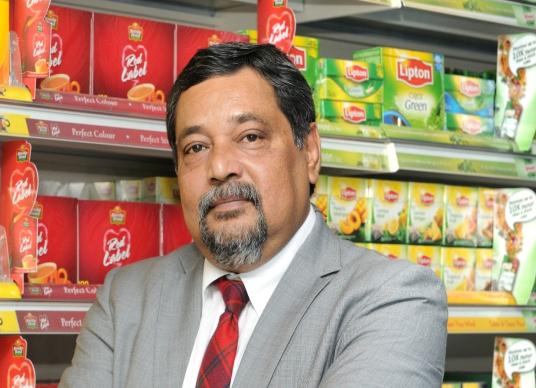
The MENA region is one of the fastest growing regions for Unilever, its turnover driven by leadership positions in most of the categories it operates in. The company has nine manufacturing sites across the region that manufacture and sell 80% of its products.
In 2010, Unilever unveiled its global Unilever Sustainable Living Plan to double its global business while halving its environmental footprint by 2020. The FMGG major’s strategy for sustainability begins with its sourcing and manufacturing processes and extends to its customers and the society it serves. Its three pillars of sustainable living are – improving health and hygiene, reducing environmental impact and enhancing livelihoods.
Two years later in 2012, Unilever MENA unveiled its regional edition of the plan. Last month, the company highlighted its achievements in implementing its plan over the past year at a conference held in Dubai and outlined the path ahead.
“As a business, we do not have the luxury of choosing between growth and sustainability; we have to have both. Sustainable business growth can only be achieved through equitable practices that are environmentally viable and contribute to overall prosperity. We recognise this truth,” says Sanjiv Mehta, chairman, Unilever North Africa Middle East.
Unilever’s sustainability initiatives include adopting eco-efficiency practices in its manufacturing processes to reduce greenhouse gases, water and waste. The company aims to source all its tea, palm oil and paper board sustainably by 2020.
“Our attempts to optimise our manufacturing process have resulted in a 23% drop in carbon dioxide emissions per tonne of production, while water usage and waste generation have dropped 13% and 41% per tonne, respectively. Today 50% of tea and 75% of paper and board are sustainably sourced. We have also achieved our target for palm oil last year, securing 100% of our requirements from sustainably certified plantations,” says Mehta.
Unilever has taken up several initiatives for conserving water in partnership with government departments such as DEWA in Dubai and Kahramaa in Doha. It has also partnered with leading retailers in the Middle East to raise consumer awareness to reduce water consumption and improve waste management in laundry and skin care.
“Our top priority is to save water. Our products are manufactured to save water. Take the example of Lifebuoy, which kills germs in 10 seconds, and Lux shower gel, which lathers faster that its counterparts. Both require less water. We are also able to determine precisely how much water our products consume when used,” says Arijit Ghose, managing director for Unilever Gulf.
“If sales of our water-saving products increases, it translates into saving more water. Between 2011 and 2012, Lifebuoy product sales increased 15.1%, while Signal toothpaste sales grew 7.7% as we focused on improving hygiene and water conservation,” he adds.
Ghose sees a lot of potential to empower people and create job opportunities through the third pillar of the programme – enhancing livelihoods. Unilever MENA launched its ‘Baqala’ programme in Oman to train and develop the skills of grocery owners and entrepreneurs so they could run their shops more efficiently.
In Egypt, the company launched the ‘Zeinab’ project to create job opportunities for women by training them in small business skills and providing them Unilever product start-up baskets.
“We took up a pilot programme in June 2012 with 50 women from one of Alexandria’s poorest rural areas. We taught them how to read and write and our sales experts trained them in sales promotion and door-to-door selling of our products to generate a sustainable income for themselves and their families. By end-2012, around 1,000 women were operating under the programme,” says Ghose.
Another project taken up in Egypt’s Delta region was ‘Safeer’, under which the company recruits and trains unemployed young men to become Unilever’s salesmen and provides them with an assortment pack of Unilever products specifically tailored for rural areas.
“The Middle East is prospering and developing and we have accomplished much, but there are still many challenges to overcome. These include reducing our environmental impact across the entire value chain, scaling up our livelihood programmes and modifying consumer behaviour in the long-term to raise awareness of sustainable living,” concludes Mehta.
You must be logged in to post a comment.